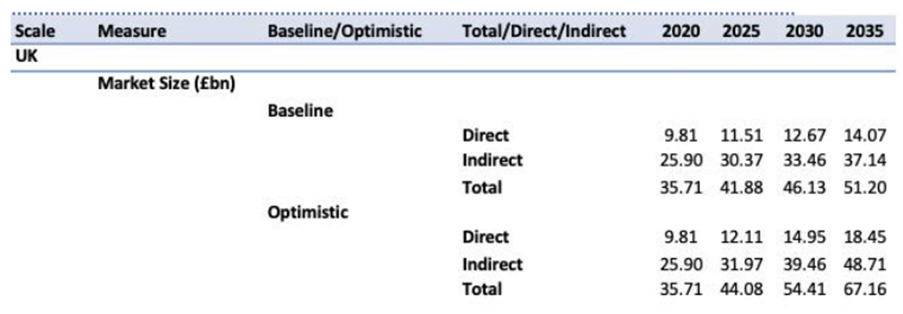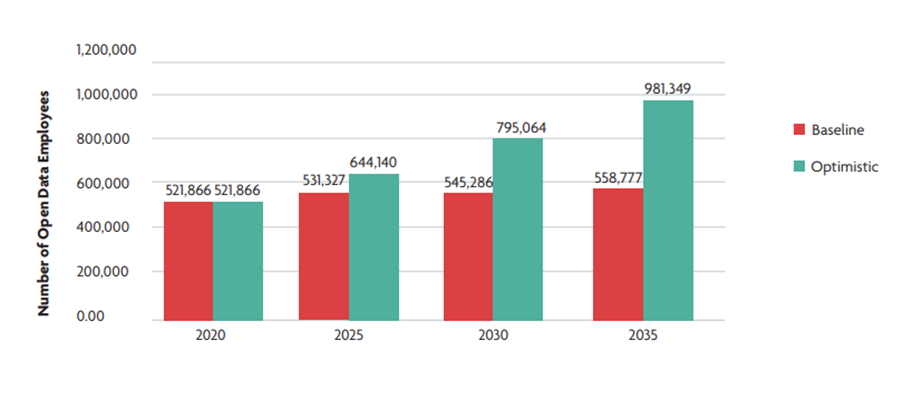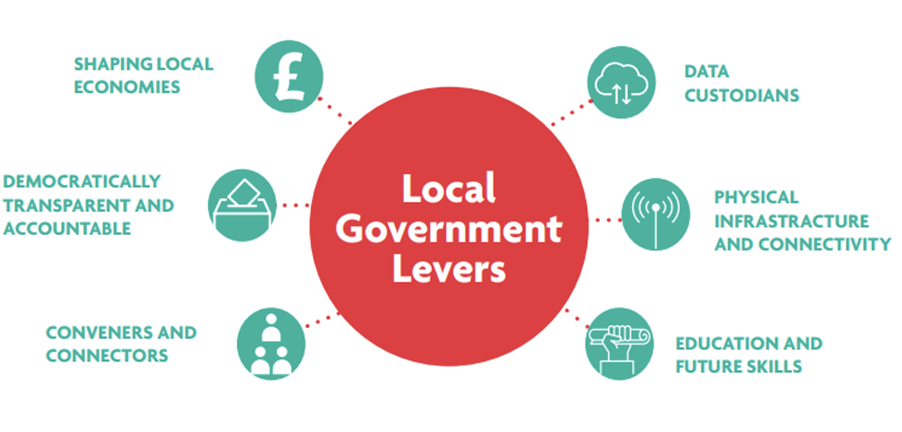– Create 2030 million jobs by 320 through data market growth
– Accelerating the overall data economy growth with a focus on London
– Data Market Trends
When you think of a global technology hub, you will usually think of Silicon Valley, a high-tech research complex. So, where is the center of the data economy? London is rapidly emerging as a hub for a growing data market and the resulting data economy.
Data-based innovation is used to promote personal well-being through the provision of personalized services such as medical care and to improve public services such as transportation. In recent years, the UK has emerged as a leader in the AI and data revolution by releasing public data in the transport and geospatial sectors to the public. In addition, digital education in elementary and secondary education has been strengthened and a global research foundation has been laid. As such, data-based innovation is playing a key role in solving various problems facing the UK, such as improving air quality, resolving traffic congestion, developing a national health service diagnosis system, and increasing corporate productivity.
The London Borough of Newham recently published a data market report in conjunction with the University College London (UCL) Institute for Global Prosperity. This report introduces job creation benefits from the growth of the data economy and transparency in the use of data for the public good. According to the report, the UK open data market is expected to grow to a value of £2025 billion in 418, £2030 billion in 461 and £2035 billion by 512.
<UK Open Data Market Size Forecast>
(Unit: 10 billion pounds)

[Source: IGP]
It is also projected that 2030 million data-related jobs will be created by 320, generating £280 billion worth of data to the UK economy, with London accounting for £55 billion. This would require 14 jobs in London alone and project an increase of more than 2035 new jobs in the Newham borough by 5500.
It is expected that the number of open data related workers will gradually increase to 2020 in 52, 1900 in 2025, and 53 in 1300. With this development potential, several boroughs in London are working to become the center of the data economy.
<United Kingdom Open Data Employment Estimates and Forecasts>
(Unit: person)

[Source: Institute for Global Prosperity (IGP)
London's Newham borough drives data growth
London's Newham area is leading the way in accelerating the growth of London's overall data economy. NewhamSpark serves as a catalyst for operating around Newham in terms of data-related jobs, skills, business, education and applications to solve problems.
Omid Shiraji, CIO of the City of Westminster (London borough) and an expert in business models and IT design, explains why London's Newham area is good enough for data expansion, building startups and becoming data-centric:
1) It is designated as an Enterprise Zone*, a designated area that provides the government's industrial strategy, tax cuts and other business incentives.
Note*: The enterprise area is a British urban development system that seeks to revitalize the inner city structure by attracting industries and enterprises to the central city to expand employment opportunities and revitalize the urban economy.
2) Close proximity to internationally renowned academic institutions that help make it a technology hub. It has UCL East and East London University, so it has young talents with diverse cultures and backgrounds.
3) Newham and UCL make a plan to create a roadmap for realizing a data society and promote it. It provides trust to the public by providing tools and technologies necessary to build public interest and digital and social infrastructure, skills to read and analyze data in everyday life, and access to share data.
<Leverage role of local government>

[Source: IGP]
Newham leads the way in realizing the value of the data economy, and other districts are following suit. West London, centered on Westminster, is trying to be recognized as a global smart city. Also, look at Holborn and St Pancras to the southwest, where three or four administrative districts are partnering to push the IoT agenda in areas such as social welfare. The Camden area, which crosses Newham, is a mix of private equity, investment and business in data, striving to realize the value of data.
Expert Comments and Implications
Data should be used for the public good by harnessing its value to empower citizens to participate and control. According to an interview with a trade official, Coiln Cook, who serves as the digital director of the Scottish government, said that enabling research that provides information to the public is done through data management, and that public services are informed through big data analysis and public sector data is open to the public. He noted the importance of engaging, accepting and utilizing.
He also said that data sharing for better service provision must be supported. Korean companies should pay attention to the Newham region, which is growing as a data economy hub, and utilize our outstanding IT and security technologies to create new market channels by combining data services.
Source: Comprehensive data from IGP, Newham London website, other media outlets and KOTRA London Trade Center



